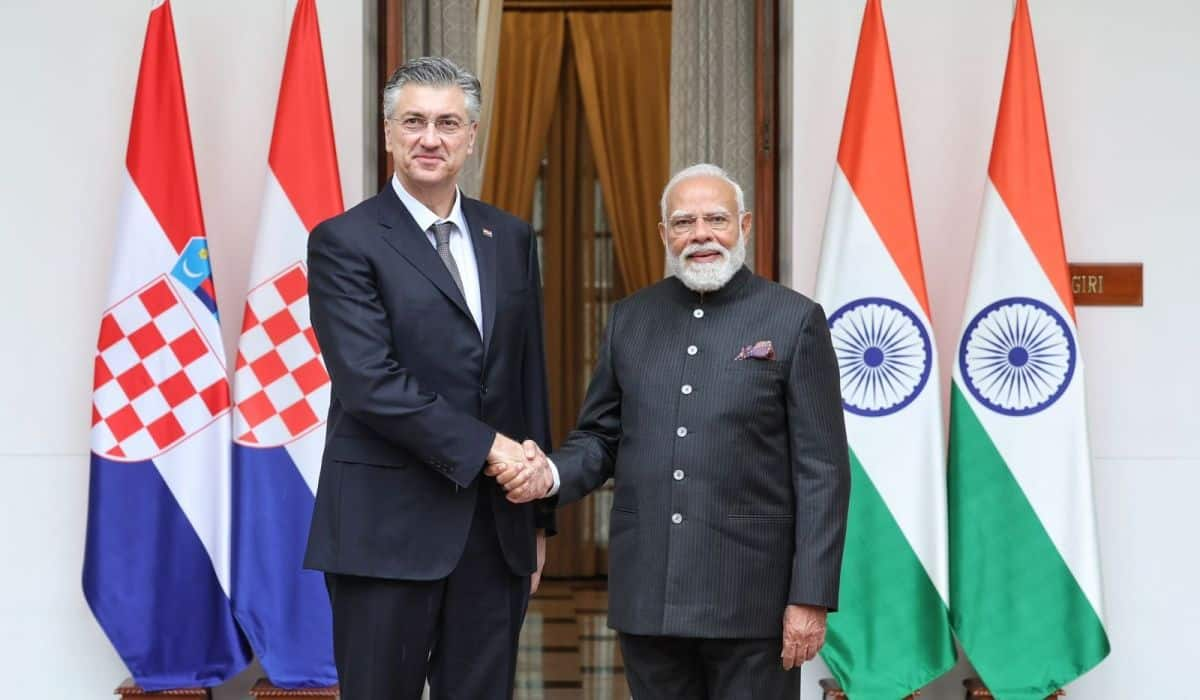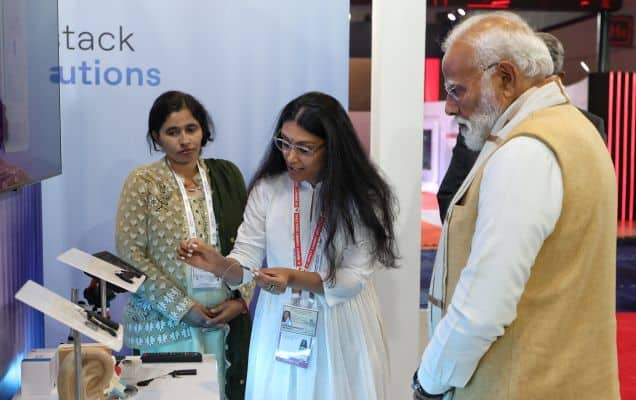Prime Minister Shri Narendra Modi today unveiled various developmental projects in Gujarat.These projects include a desalination plant, a hybrid renewable energy park, and a fully automated milk processing and packing plant. The Chief Minister of Gujarat was present on the occasion.
Speaking on the occasion, the Prime Minister said one has to keep up with the changing times and embrace global best practices. He lauded the farmers in Kutch in this regard, as they are now exporting fruits abroad. He said this indicates the innovative zeal of our farmers. He said the agriculture, dairy and fisheries sectors have prospered in Gujarat over the last two decades due to minimum interference from the Government. What Gujarat did was to empower farmers and cooperatives.

The Prime Minister said that farmers are being misled about the agriculture reforms. He pointed out that the agriculture reforms that have taken place is exactly what farmer bodies and even opposition parties have been asking over the years. He reiterated that the Government of India is always committed to farmer welfare and we will keep assuring the farmers, addressing their concerns.
The Prime Minister said, today, Kutch has taken a big leap in both new age technology and new age economy. Foundation stone laid for the Renewable Energy Park in Kharera, Desalination plant in Mandvi and the New Automatic plant at Sarhad Dehri in Anjar are going to create new milestones in the development journey of Kutch. He added that the benefit of these projects would accrue to the tribals, farmers, cattle ranchers and common people of the region. He remarked that today, Kutch is one of the fastest growing regions of the country. The connectivity here is getting better day by day.

The Prime Minister recalled the moment in time when the people of Gujarat had a ‘simple’ demand - to get electricity during dinner time. He said things have changed so much in Gujarat. Today’s youth in Gujarat are not even aware of the earlier days of inconvenience, he said. The Prime Minister recalled that the population in Kutch used to have negative growth. Now that people have stopped going out, the population is thriving as people are coming back .He called upon the researchers and universities to do a case-study on Kutch's four-fold development post the massive earthquake.
He lauded the Gujarat Government for introducing many farmer friendly schemes in the last twenty years. He said Gujarat was a pioneer to work on strengthening solar energy capacities.

The Prime Minister remarked that Energy security and water security are vital in the 21st century. He said that the early teams were mocked when they spoke of getting Narmada waters to Kutch to solve the problem of scarcity. Now, Narmada waters have reached Kutch and Kutch is progressing.
आज कच्छ ने New Age Technology और New Age Economy, दोनों ही दिशा में बहुत बड़ा कदम उठाया है: PM @narendramodi in Kutch
— PMO India (@PMOIndia) December 15, 2020
इसका बहुत बड़ा लाभ यहां के मेरे आदिवासी भाई-बहनों, यहां के किसानों-पशुपालकों, सामान्य जनों को होने वाला है: PM @narendramodi
— PMO India (@PMOIndia) December 15, 2020
खावड़ा में Renewable Energy पार्क हो,
— PMO India (@PMOIndia) December 15, 2020
मांडवी में Desalination plant हो,
और अंजार में सरहद डेहरी के नए ऑटोमैटिक प्लांट का शिलान्यास,
तीनों ही कच्छ की विकास यात्रा में नए आयाम लिखने वाले हैं: PM @narendramodi
आज कच्छ देश के सबसे तेज़ी से विकसित होते क्षेत्रों में से एक है।
— PMO India (@PMOIndia) December 15, 2020
यहां की कनेक्टिविटी दिनों दिन बेहतर हो रही है: PM @narendramodi
I can never forget the time when the people of Gujarat had a ‘simple’ demand - to get electricity during dinner time.
— PMO India (@PMOIndia) December 15, 2020
Things have changed so much in Gujarat. Today’s youth in Gujarat are not aware of the earlier days of inconvenience: PM @narendramodi
Over the last twenty years, Gujarat introduced many farmer friendly schemes.
— PMO India (@PMOIndia) December 15, 2020
Gujarat was among the earliest to work on strengthening solar energy capacities: PM @narendramodi
Energy security & water security are vital in the 21st century. Who can forget the water problems of Kutch. When our team spoke of getting Narmada waters to Kutch, we were mocked. Now, Narmada waters have reached Kutch & by the blessings of Maa Narmada, Kutch is progressing: PM
— PMO India (@PMOIndia) December 15, 2020
One has to keep changing with the times and embrace global best practices. In this regard I want to laud the farmers in Kutch. They are exporting fruits abroad. This is phenomenal and indicates the innovative zeal of our farmers: PM @narendramodi
— PMO India (@PMOIndia) December 15, 2020
The agriculture, dairy and fisheries sectors have prospered in Gujarat over the last two decades. The reason is- minimum interference from the Government. What Gujarat did was to empower farmers and cooperatives: PM @narendramodi
— PMO India (@PMOIndia) December 15, 2020
The agriculture reforms that have taken place is exactly what farmer bodies and even opposition parties have been asking over the years.
— PMO India (@PMOIndia) December 15, 2020
Government of India is always committed to farmer welfare and we will keep assuring the farmers, addressing their concerns: PM @narendramodi














